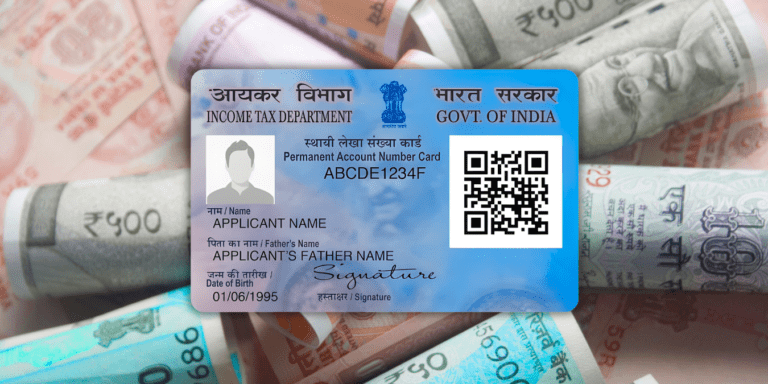
Not Filing ITR on Time Has Harsh Consequences for Taxpayers in India: Financial, Legal, and Compliance Risks in 2025
Did you know missing the September 15, 2025, ITR deadline could cost you Rs 5,000, jail time, or your dream visa? In 2025, India’s strict tax laws hit late filers with harsh penalties, lost deductions, and audits that disrupt lives. From Rs 1.5 lakh benefit losses to legal battles, discover why 1.2 crore taxpayers risk it all. Uncover expert hacks to file on time, save refunds, and avoid scrutiny. Don’t let one oversight ruin your finances—learn the shocking consequences and act now!
Filing your Income Tax Return (ITR) on time in India isn’t just a routine task—it’s a safeguard against mounting financial woes, legal battles, and compliance headaches that can derail your life. In 2025, with stricter enforcement from the Income Tax Department, missing the deadline means facing penalties that could wipe out your savings or even lead to jail time. Imagine a busy professional in Mumbai who overlooked the due date last year, only to receive a hefty notice that snowballed into court proceedings and damaged their credit score—this real scenario highlights why understanding these risks is essential for every Indian taxpayer.
What Is the ITR Filing Deadline in 2025?
The ITR filing deadline in 2025 is a critical date every taxpayer must mark on their calendar. For the Financial Year (FY) 2024-25, which corresponds to Assessment Year (AY) 2025-26, the standard due date without penalties is September 15, 2025. This applies broadly to individual taxpayers, including salaried professionals, freelancers, pensioners, and non-audit small businesses under the Income Tax Act, 1961.
This deadline was extended from the traditional July 31 due to widespread requests from taxpayer associations amid economic recovery challenges post-pandemic. The extension, announced by the Finance Ministry in June 2025, aims to give more breathing room, but officials have emphasized no further delays will be granted. As of today, September 15, 2025, millions of Indians are rushing to file, with the e-filing portal reporting a 20% surge in submissions compared to last year, per CBDT data.
If you miss September 15, a belated return option exists until December 31, 2025. However, this comes with strings attached, like mandatory late fees and forfeited benefits. Understanding this window is key to minimizing damage.
For businesses requiring audits, the deadline shifts to October 31, 2025, under Section 44AB. High-net-worth individuals with foreign assets must also adhere strictly, as non-compliance triggers additional scrutiny. Always check your category on the official Income Tax portal to avoid surprises.
Financial Penalties for Late ITR Filing
Financial penalties form the immediate sting of not filing ITR on time in India. Under Section 234F of the Income Tax Act, late fees are slab-based, designed to deter procrastination. For taxpayers with total income up to Rs 5 lakh, the fee is capped at Rs 1,000—a relief for low earners but still a burden.
For those earning above Rs 5 lakh, the penalty escalates to Rs 5,000. This flat fee applies even if no tax is due, making it a pure compliance charge. In 2025, with inflation at 6.5% as per RBI estimates, this amount feels heavier on middle-class pockets.
Beyond fees, interest accrues on unpaid taxes under Sections 234A, 234B, and 234C. Section 234A charges 1% per month on outstanding tax from the original due date. If you owe Rs 50,000 in taxes and file three months late, that's an extra Rs 1,500 in interest alone.
Section 234B targets advance tax shortfalls, adding 1% monthly on the deficit. For business owners who miscalculate quarterly payments, this can compound quickly. Section 234C penalizes deferred advance tax installments, hitting seasonal earners like farmers or freelancers hard.
These penalties aren't static; they rise with delays. Filing belatedly by December reduces some risks but not all. Early action saves money and stress.
Legal and Compliance Risks: Beyond Just Penalties
Legal risks elevate the stakes of not filing ITR on time far beyond finances. If you ignore even the belated December 31, 2025, deadline, prosecution under Section 276CC becomes possible. This can lead to fines up to twice the evaded tax or imprisonment from six months to seven years for willful default.
In 2025, the government has ramped up digital tracking via Aadhaar-PAN linkage, making evasion harder. A recent CBDT circular emphasizes stricter audits for non-filers, with AI tools scanning bank transactions for discrepancies. This means late filers often face notices under Section 148 for reassessment.
Compliance issues extend to everyday life. Banks and NBFCs now factor ITR compliance into credit scores via CIBIL integration. A delayed filing could hike your home loan interest by 0.5-1%, per 2025 SBI guidelines.
Visa applications suffer too—embassies like the US or UK require recent ITRs as proof of financial stability. A Kolkata entrepreneur learned this the hard way in 2024 when his Schengen visa was denied due to non-filing, costing a business deal.
Real cases abound. In a 2024 Delhi High Court ruling, a woman was jailed for three months for repeated non-compliance, owing Rs 2 lakh in taxes. This precedent warns that ignorance isn't bliss. For NRIs, non-filing risks double taxation treaties violations.
Business owners face GST cross-verification; mismatches trigger audits. Salaried folks might lose employer TDS credits. Overall, these risks paint a picture of eroded trust with authorities.
To mitigate, maintain transparency. Use the Income Tax portal's compliance checker tools introduced in 2025. Stay informed via official apps to avoid legal pitfalls.
Tax Benefits and Carry Forward Loss Restrictions Due to Late Filing
Missing ITR deadlines in 2025 strips away vital tax benefits, hitting long-term planning. Under Section 139(4), belated filers can't carry forward most losses. Capital losses from stock sales or business setbacks become unusable against future gains.
Only unabsorbed depreciation and house property losses survive late filing. For a Mumbai real estate investor with Rs 3 lakh rental loss, timely filing allows offset against salary income next year. Late? That benefit vanishes.
Tax regime choices lock in too. The new regime (post-2020) offers lower rates sans deductions, but switching back to the old regime requires original deadline compliance. In 2025, with new regime slabs up to Rs 7 lakh tax-free (per Budget 2025), many regret late opts.
Deductions under 80C (Rs 1.5 lakh limit) or 80D (health insurance) demand timely ITR. Freelancers losing 80QQB royalty deductions face higher effective taxes. Investors miss 54EC capital gains exemptions on bonds.
A narrative from Ahmedabad: A startup founder with Rs 4 lakh business loss filed late in 2024, forfeiting carry-forward. In 2025 profits, he paid full tax, stunting growth. CBDT data shows 30% of belated filers lose over Rs 10,000 in benefits annually.
For senior citizens, pension exemptions under 80TTB are at risk. NRIs lose foreign tax credits. These restrictions cascade, affecting retirement planning.
Pro tip: Simulate scenarios using ITR software before deadlines. This preserves flexibility in India's evolving tax landscape.
Delayed Refund Processing and Increased Scrutiny
Late ITR filing in 2025 delays refunds, straining cash flows. The department processes timely returns within 30-45 days, but belated ones take 3-6 months, per 2025 e-filing stats. If expecting Rs 20,000 refund, that's locked capital earning no interest.
Increased scrutiny follows. Late filers enter a high-risk pool for AI-driven audits. Notices under Section 143(2) demand explanations, prolonging resolutions.
A Bangalore salaried employee shared: Filed late in 2024, faced a six-month audit delaying refund and adding stress. In 2025, with faceless assessments, this is amplified.
Scrutiny covers income mismatches via AIS (Annual Information Statement). Foreign income or crypto gains draw extra eyes. Businesses risk stock valuations probes.
To avoid, file early. Use pre-filled ITR forms available since April 2025. This ensures swift processing and peace.
Step-By-Step How to File ITR on Time in 2025
Filing ITR timely prevents all woes. Here's a detailed guide for 2025.
- Gather Necessary Documents: Start with essentials.
- Collect Form 16 from employers, bank interest certificates (Form 16A), and investment proofs like ELSS receipts. For businesses, maintain ledgers and invoices.
- Include Aadhaar, PAN, and expense bills for deductions. Digital organization via apps like ClearTax saves time.
- Access the e-Filing Portal
- Visit incometax.gov.in. Register or log in using PAN as user ID. New users link Aadhaar instantly.
- Enable two-factor authentication for security. Portal updates in 2025 include mobile-friendly interfaces.
- Select the Right Assessment Year: Choose AY 2025-26 for FY 2024-25. Confirm via dashboard. Mismatch leads to rejections.
- Pick the Appropriate ITR Form
- ITR-1 for simple salaries up to Rs 50 lakh. ITR-2 for capital gains. ITR-3 for businesses, ITR-4 for presumptive taxation.
- Consult guides if unsure. Wrong form delays processing.
- Enter Details Accurately
- Input income sources section-wise. Claim deductions under relevant chapters. Cross-verify with Form 26AS for TDS.
- Use auto-populate features new in 2025.
- Verify Tax Calculations
- Calculate liability. Adjust for advance taxes paid. Form 26AS ensures credits match.
- Discrepancies trigger notices.
- Submit and E-Verify
- Upload return. E-verify via Aadhaar OTP, net banking, or DSC. Instant verification completes process.
- Offline options exist but slower.
- Save and Track Acknowledgment
- Download ITR-V. Track status via portal. Keep for five years minimum.
- Filing early avoids server crashes near September 15.
Pro Tips to Avoid Late ITR Filing Mistakes
Stay ahead with these expert strategies.
- Set Reminders: Use Google Calendar or tax apps for alerts weeks ahead.
- File Early: Submit by August to beat rushes; portals slow down 20% in last days, per 2025 data.
- Monitor TDS: Quarterly check Form 26AS; mismatches affected 15% filers last year.
- Hire Experts: CAs handle complexities, saving Rs 5,000+ in errors.
- Organize Records: Digital folders for docs; use OCR apps for scans.
- Stick to Official Tools: Avoid unverified sites; phishing rose 30% in 2025.
- Budget for Taxes: Set aside 30% earnings monthly for smooth payments.
- Learn Updates: Follow CBDT Twitter for 2025 changes like crypto reporting.
These habits build compliance culture.
Common Mistakes and Their Consequences
Avoid pitfalls that amplify risks.
- Ignoring Minor Incomes: Freelance gigs or interest often skipped. Leads to under-reporting notices, fines up to 200% of tax evaded.
- Wrong Form Selection: Using ITR-1 for business income rejects return. Refile with penalties.
- Skipping Verification: Unverified ITR invalid. Equals non-filing, triggering full consequences.
- Missing Regime Switch: Locked into new regime sans deductions. Loses Rs 50,000+ savings for many.
- Forgetting Foreign Assets: Schedule FA omission invites Black Money Act penalties, up to Rs 10 lakh.
- Inaccurate Deductions: Overclaiming 80C leads to audits. Stick to proofs..
- Correct via revisions before deadlines.
Featured Snippet: Key Takeaways
- Filing ITR on or before September 15, 2025 avoids penalties.
- Late filing causes fees up to Rs 5,000, plus interest on tax dues.
- Missing deadlines restricts carry forward losses and tax regime options.
- Late filers face delayed refunds and greater scrutiny.
- Legal consequences include prosecution and imprisonment for repeated non-compliance.
- Early, accurate filing with proper documents minimizes risks.
Final Thought: Take Control of Tax Compliance Today
The harsh consequences of not filing ITR on time in 2025 can disrupt financial stability, invite legal issues, and block valuable tax benefits for Indian taxpayers. The costs far outweigh the effort required to comply.
Start organizing tax documents now, utilize the government’s e-filing portal, and meet the deadline confidently. If unsure, consult a tax professional to ensure peace of mind.
Failure to act timely means paying penalties, facing interest, and losing critical advantages. Take charge of your tax compliance to secure your financial future.































